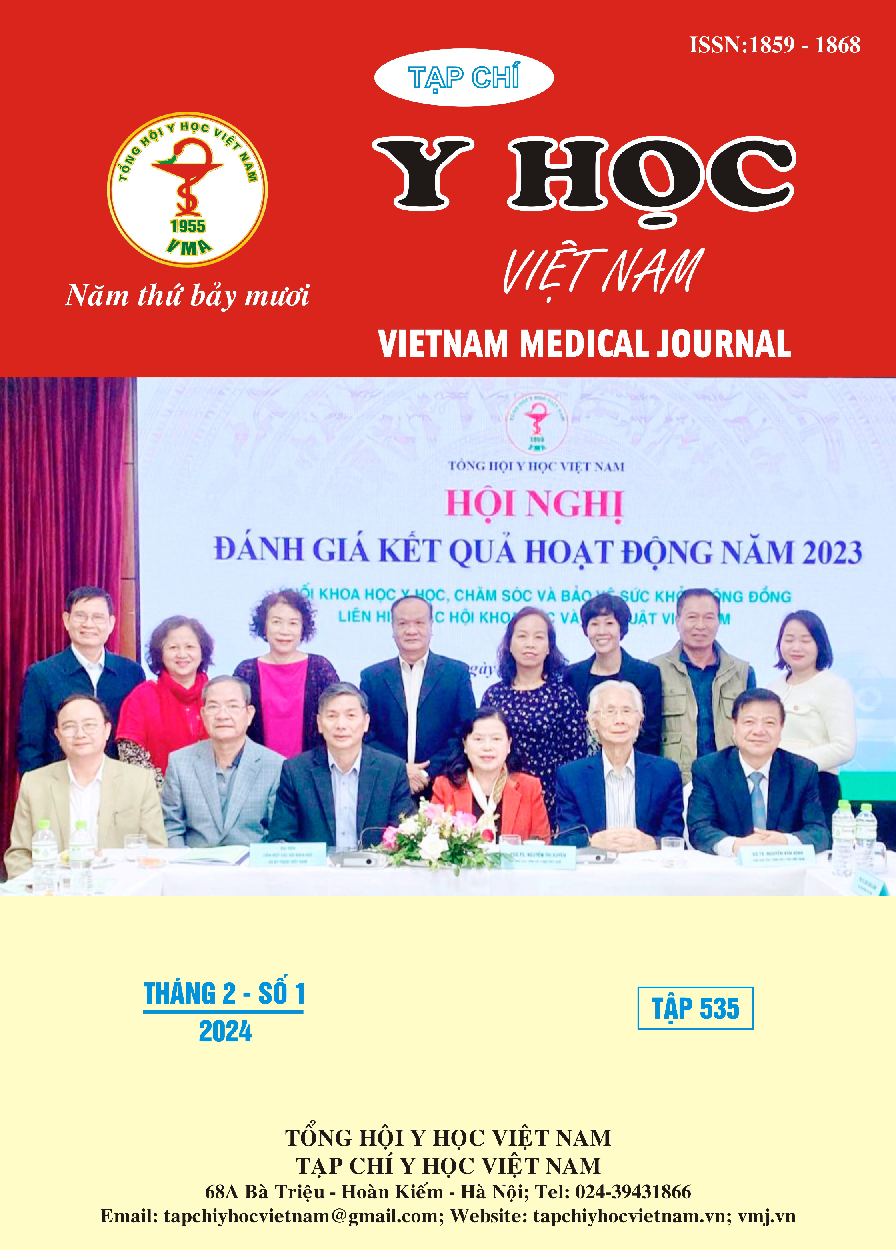THE CORRELATION BETWEEN THE SECRETORY ACTIVITY OF PERIPHERAL BLOOD NK CELLS AND THE CYTOTOXIC CAPACITY OF EX-VIVO EXPANDED NK CELLS DERIVED FROM PROSTATE CANCER PATIENTS
Main Article Content
Abstract
Objective: To clarify the correlation between the secretory activity of NK cells derived from the peripheral blood of prostate cancer patients and the target cell killing capacity of NK cells after ex-vivo expansion. Research objects and methods: The study collected data on the peripheral blood NK cell secretory activity of 14 prostate cancer patients and the culturing of NK cells from the above patients within 14 days. We evaluated the killing ability of prostate cancer (PC3) cells from freshly isolated NK cells (day D0) and cells after proliferation culture (day D14) using flow cytometry. Results: The ability to kill target cells increased from 14.13% on day 0 to 51.12% on day 14. In particular, the amount of NKA-IFNγ released from NK cells in prostate cancer patients strongly correlates to how well post-proliferative NK cells kill PC3 cells (r = 0.699, p = 0.005). Conclusion: In prostate cancer patients, the secretory activity of peripheral blood NK cells showed a strong correlation with the cytotoxic capacity of the NK cells after expansion.
Article Details
References
2. V. Dedeepiya, H. Terunuma, S. Manjunath, et al. Autologous Immune Enhancement Therapy for cancer using NK cells and CTLs without feeder layers; our six year experience in India, J Stem Cells Regen Med. 2011 Oct 30;7(2):95.
3. H.T.M. Nhung, B.V. Anh, T.L. Huyen, D.T. Hiep, C.T. Thao, P.N. Lam, N.T. Liem. Ex vivo expansion of human peripheral blood natural killer cells and cytotoxic T lymphocytes from lung cancer patients, Oncol Lett. 2018 Apr;15(4):5730-5738.
4. H.P. Nguyen, D.D. Pham, N.D. Dinh, P.V. Nguyen, V.A. Bui, M.T. Hoang, L.T. Nguyen. Evaluating the Safety and Quality of Life of Colorectal Cancer Patients Treated by Autologous Immune Enhancement Therapy (AIET) in Vinmec International Hospitals. Int J Mol Sci. 2022 Sep 26;23(19):11362.
5. S.B. Lee, J. Cha, I.K. Kim, J.C. Yoon, et al. A high-throughput assay of NK cell activity in whole blood and its clinical application. Biochem Biophys Res Commun. 2014 Mar 14;445(3):584-90.
6. F. Wang, X. Dong, J. Wang, F. Yang, et al. Allogeneic Expanded Human Peripheral NK Cells Control Prostate Cancer Growth in a Preclinical Mouse Model of Castration-Resistant Prostate Cancer, J Immunol Res. 2022 Apr 11;2022:1786395.
7. S.P. Hood, G.A. Foulds, H. Imrie, et al. Phenotype and Function of Activated Natural Killer Cells From Patients With Prostate Cancer: Patient-Dependent Responses to Priming and IL-2 Activation, Front Immunol. 2019 Jan 25;9:3169.
8. Rezaeifard S, Heike Y, Masuyama JI, et al. Autologous Natural Killer Cell-enrichment for Immune Cell Therapy: Preclinical Setting Phase, Shiraz Experience. Iran J Allergy Asthma Immunol. 2021;17;20(2):233-243.
9. M. Berg., et al. Ex-vivo expansion of NK cells: What is the priority - high yield or high purity?. Cytotherapy. 2010;12: 969–970.
10. Pasero C., Gravis G., Guerin M., et al. Inherent and tumor-driven immune tolerance in the prostate microenvironment impairs natural killer cell antitumor activity. Cancer Res. 2016;76:2153–65.


